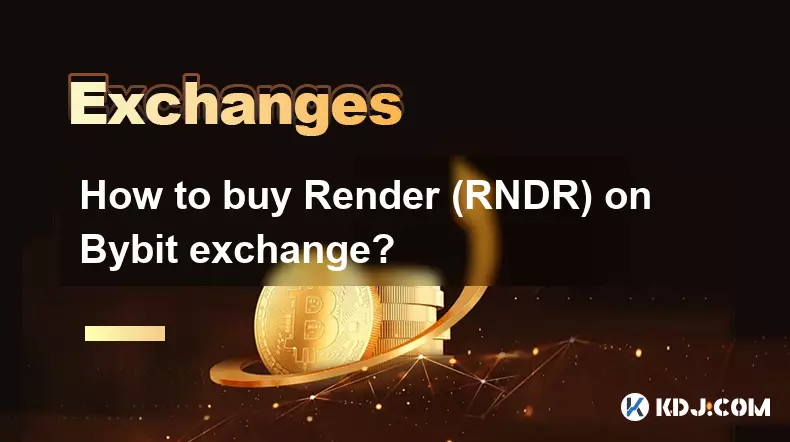-
 bitcoin
bitcoin $87959.907984 USD
1.34% -
 ethereum
ethereum $2920.497338 USD
3.04% -
 tether
tether $0.999775 USD
0.00% -
 xrp
xrp $2.237324 USD
8.12% -
 bnb
bnb $860.243768 USD
0.90% -
 solana
solana $138.089498 USD
5.43% -
 usd-coin
usd-coin $0.999807 USD
0.01% -
 tron
tron $0.272801 USD
-1.53% -
 dogecoin
dogecoin $0.150904 USD
2.96% -
 cardano
cardano $0.421635 USD
1.97% -
 hyperliquid
hyperliquid $32.152445 USD
2.23% -
 bitcoin-cash
bitcoin-cash $533.301069 USD
-1.94% -
 chainlink
chainlink $12.953417 USD
2.68% -
 unus-sed-leo
unus-sed-leo $9.535951 USD
0.73% -
 zcash
zcash $521.483386 USD
-2.87%
What happens to my crypto if Coinbase goes bankrupt?
If Coinbase were to go bankrupt, your crypto could be at risk if not stored in a non-custodial wallet, as user funds may be treated as part of the company's assets during bankruptcy proceedings.
Jul 03, 2025 at 06:42 am

Understanding the Risks: What Happens to Your Crypto if Coinbase Folds
If Coinbase were to go bankrupt, one of the primary concerns for users would be the safety and accessibility of their cryptocurrency holdings. As a centralized exchange, Coinbase holds user assets in its custody, which introduces counterparty risk. This means that while you may own the crypto listed in your account, the actual private keys might not be under your direct control. In the event of bankruptcy, these assets could become part of the company’s estate, potentially leading to delays or complications when trying to retrieve them.
It is important to understand that custodial platforms like Coinbase operate differently from non-custodial wallets. When you store crypto on such platforms, you're essentially entrusting them with the management of your digital assets. Therefore, understanding how insolvency affects your holdings is crucial for making informed decisions about where to store your crypto long-term.
What Happens to Custodial Assets During Bankruptcy?
In the case of a bankruptcy filing by Coinbase, custodial assets — including user-held cryptocurrencies — may be subject to legal proceedings. Depending on how Coinbase structures its balance sheet and segregates customer funds, there's a possibility that user assets could be treated as general assets of the company rather than being ring-fenced. If this occurs, users might have to file claims in bankruptcy court to recover their funds, a process that can be lengthy and uncertain.
- Segregation of Funds: If Coinbase maintains proper segregation of user assets from corporate funds, customers may have a stronger claim to their crypto.
- Legal Jurisdiction: The location of Coinbase’s headquarters and the jurisdiction under which it operates will influence how claims are handled.
- Insurance Coverage: While Coinbase does offer some insurance protection for hot wallet storage, it typically doesn’t cover losses due to insolvency.
Steps You Can Take to Protect Your Crypto
To mitigate risks associated with centralized exchanges going out of business, users should consider taking proactive steps to secure their digital assets. One of the most effective strategies is moving funds to personal, non-custodial wallets where you retain full control over your private keys.
- Use Hardware Wallets: Devices like Ledger or Trezor allow offline storage and provide an extra layer of security against platform failures.
- Backup Your Recovery Phrase: Always write down and securely store your recovery phrase in multiple safe locations.
- Diversify Storage: Don’t keep all your crypto in one place. Spread your holdings across multiple wallets and platforms to reduce exposure.
Recovering Funds After Coinbase Bankruptcy
If Coinbase enters bankruptcy proceedings, recovering your funds could involve several stages depending on regulatory actions and court rulings. Users may need to submit proof of ownership through transaction records, account statements, or other verifiable documentation.
- File a Claim: Once the bankruptcy court opens a claims process, users must file within the specified timeframe to assert ownership.
- Wait for Distribution: Even after filing, payouts may take months or years, and they may only return a fraction of the original value if assets are liquidated at a loss.
- Engage Legal Counsel: For large holdings, hiring a lawyer experienced in bankruptcy proceedings can help navigate complex claims processes.
Alternatives to Coinbase for Long-Term Holding
For those concerned about relying on a single exchange, exploring alternative storage solutions becomes essential. Non-custodial wallets, decentralized exchanges (DEXs), and cold storage options offer greater autonomy and reduced reliance on third-party solvency.
- Non-Custodial Wallets: Trust Wallet, Electrum, and MyEtherWallet give users complete control over their private keys.
- Decentralized Exchanges: Platforms like Uniswap or SushiSwap allow trading without needing to deposit funds into a centralized custodian.
- Cold Storage Solutions: Offline storage using hardware wallets ensures your crypto isn’t vulnerable to online threats or exchange-related collapses.
Frequently Asked Questions
Q: Does Coinbase insure my crypto against bankruptcy?A: No, Coinbase does not provide insurance coverage for losses related to bankruptcy or insolvency. Its existing insurance policies are primarily designed to protect against theft or cyberattacks on hot wallets.
Q: Will I lose all my crypto if Coinbase shuts down?A: Not necessarily. If Coinbase properly segregates user funds, you may still be able to recover your assets through legal channels, although the process can be time-consuming and unpredictable.
Q: Can I withdraw my crypto during a bankruptcy proceeding?A: It depends on the court’s decision and whether the bankruptcy trustee freezes withdrawals. There may be restrictions placed on fund movement once formal proceedings begin.
Q: Is holding crypto on Coinbase riskier than using a hardware wallet?A: Yes, storing crypto on any custodial platform inherently carries more risk compared to self-custody via a hardware wallet, especially during events like bankruptcy or insolvency.
Disclaimer:info@kdj.com
The information provided is not trading advice. kdj.com does not assume any responsibility for any investments made based on the information provided in this article. Cryptocurrencies are highly volatile and it is highly recommended that you invest with caution after thorough research!
If you believe that the content used on this website infringes your copyright, please contact us immediately (info@kdj.com) and we will delete it promptly.
- Trump Dives Deeper into Crypto: Launch of New Coin Fuels Market Buzz and Regulatory Scrutiny
- 2026-02-06 15:40:02
- Spur Protocol Airdrop Claim Details Emerge Amidst Market Volatility
- 2026-02-06 15:50:01
- Naira's Dynamic Dance: Navigating Depreciation and Resilience in Nigeria's Official Exchange Market
- 2026-02-06 15:35:02
- Crypto Crossroads: APEMARS Ignites Transparent Growth as ApeCoin Matures in Dynamic Digital Landscape
- 2026-02-06 16:15:01
- Strategy's Bitcoin Bet Sours: Billions in Loss as Crypto Faces Reckoning
- 2026-02-06 15:50:01
- Bitcoin Security in the Quantum Age: Strategy Plans and Emerging Threats
- 2026-02-06 16:30:02
Related knowledge

How to contact Bybit customer support for urgent help?
Feb 05,2026 at 11:40pm
Accessing Bybit Support via Live Chat1. Log in to your Bybit account using the official website or mobile application. 2. Navigate to the Help Center ...

How to use Bybit Dual Asset investment for high yield?
Feb 06,2026 at 12:20am
Understanding Bybit Dual Asset Investment Mechanics1. Dual Asset Investment is a structured product offered by Bybit that combines a stablecoin deposi...

How to buy Aptos (APT) on Bybit today?
Feb 06,2026 at 07:40am
Creating a Bybit Account1. Navigate to the official Bybit website and click the “Sign Up” button located at the top right corner of the homepage. Ente...

How to use Bybit Shark Fin for principal-protected returns?
Feb 06,2026 at 03:40pm
Understanding Shark Fin Structure1. Shark Fin products on Bybit are structured derivatives designed to offer capital protection while enabling exposur...

How to buy Worldcoin (WLD) on Bybit exchange?
Feb 05,2026 at 04:39pm
Account Registration and Verification1. Navigate to the official Bybit website and click the 'Sign Up' button located in the top-right corner. 2. Ente...

How to buy Render (RNDR) on Bybit exchange?
Feb 05,2026 at 01:39pm
Creating and Verifying Your Bybit Account1. Visit the official Bybit website and click the “Sign Up” button located at the top right corner of the hom...

How to contact Bybit customer support for urgent help?
Feb 05,2026 at 11:40pm
Accessing Bybit Support via Live Chat1. Log in to your Bybit account using the official website or mobile application. 2. Navigate to the Help Center ...

How to use Bybit Dual Asset investment for high yield?
Feb 06,2026 at 12:20am
Understanding Bybit Dual Asset Investment Mechanics1. Dual Asset Investment is a structured product offered by Bybit that combines a stablecoin deposi...

How to buy Aptos (APT) on Bybit today?
Feb 06,2026 at 07:40am
Creating a Bybit Account1. Navigate to the official Bybit website and click the “Sign Up” button located at the top right corner of the homepage. Ente...

How to use Bybit Shark Fin for principal-protected returns?
Feb 06,2026 at 03:40pm
Understanding Shark Fin Structure1. Shark Fin products on Bybit are structured derivatives designed to offer capital protection while enabling exposur...

How to buy Worldcoin (WLD) on Bybit exchange?
Feb 05,2026 at 04:39pm
Account Registration and Verification1. Navigate to the official Bybit website and click the 'Sign Up' button located in the top-right corner. 2. Ente...

How to buy Render (RNDR) on Bybit exchange?
Feb 05,2026 at 01:39pm
Creating and Verifying Your Bybit Account1. Visit the official Bybit website and click the “Sign Up” button located at the top right corner of the hom...
See all articles










































































